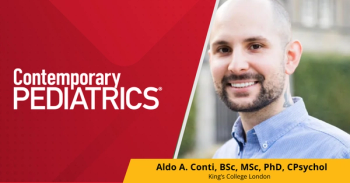
Study: No association between montelukast and neuropsychiatric adverse event risk
"In aggregation with other robust observational studies, these results can inform the management of asthma and allergic rhinitis in this patient group," wrote the study authors.
Montelukast, a leukotriene receptor agonist efficacious and widely used in children and adolescents with asthma and allergic rhinitis, was found to have no association with risk of neuropsychiatric adverse events in a newly-published JAMA Pediatrics study.
Background
Oral montelukast is used as an anti-inflammatory action and is primarily used as an add-on treatment in patients with mild-to-moderate chronic disease, who do not achieve disease control with inhaled corticosteroids (ICS) and short-acting β-agonists, stated investigators of the study.
"The uptake of montelukast is high and has increased rapidly in many countries during the last decades," wrote the study investigative team, led by Viktor Wintzell, PhD, of the Clinical Epidemiology Division in the Department of Medicine Solna at Karolinska Institutet in Stockholm, Sweden.
"In 2008, a signal emerged from spontaneous reports in the US linking montelukast to an increased risk of neuropsychiatric adverse events, including depression, anxiety, sleep disturbance, aggression, and suicide," Wintzell and colleagues wrote. "Subsequently, the US Food and Drug Administration (FDA) announced a label change for montelukast and included a warning against these suspected adverse events, which was criticized for lacking support in observational data."
With the potential association between montelukast and neuropsychiatric adverse event risk unclear, the investigative team sought to assess the link in children and adolescents.
Study details and results
In a nationwide, register-based cohort design in Sweden, data from January 1, 2007 to November 30, 2021 was used. Those included were children and adolescents aged 6. to 17 years who used montelukast and long-acting β-agonists (LABA).
According to the study, the main outcome, which consisted of any neuropsychiatric adverse event, was a composite of secondary outcomes, including anxiety; depression; sleep-related disorders; suicide and suicidal actions; disrupted control of activity, attention, and behavior; and confusion and psychotic-like symptoms.
Diagnosis codes and dispensing of prescription drugs for specific neuropsychiatric symptoms defined these outcomes.
"Patients were followed up from drug initiation to discontinuation, and treatment and censoring weights were used to adjust for potential confounding on baseline and selection bias from informative censoring," wrote the authors. "Pooled logistic regression was used to estimate hazard ratios (HRs)."
The cohort featured 74,291 children (47.7% female) with a mean age of 12.3 years. Of them, 26,462 used montelukast and 47,829 used LABA. With a mean follow-up of 5.8 months, 310 neuropsychiatric adverse events in the montelukast group and 566 events in the LABA group were identified.
Incidence rates among the weighted cohort for neuropsychiatric adverse events were 2.9 per 100 patient-years among the montelukast users and 2.41 per 100 patient-years for the LABA users. Results translated to a weighted HR of 0.99 (95% CI, 0.84-1.16).
There were no substantial differences observed between groups when analyzing the risk of specific adverse events, with HRs as follows for:
- Anxiety: 0.79 (95% CI, 0.54-1.14)
- Depression: 1.16 (95% CI, 0.70-1.95)
- Sleep-related disorders: 0.93 (95% CI, 0.76-1.13)
- Suicide and suicidal actions (95% CI, 0.64-2.69)
- Disrupted control of activity, attention, and behavior: 1.27 (95% CI, 0.84-1.90)
- Confusion and psychotic-like symptoms: 0.51 (95% CI, 0.05-5.53)
Overall, the risk of the primary outcome was consistent over subgroups and a range of sensitivity analyses, according to results.
Conclusion
"In this large study of children and adolescents based on data from routine clinical practice, there was no association between use of montelukast and the risk of neuropsychiatric adverse events," concluded the authors of the study.
"In aggregation with other robust observational studies, these results can inform the management of asthma and allergic rhinitis in this patient group."
Reference:
Wintzell V, Brenner P, Halldner L, Rhedin S, Gong T, Almqvist C. Montelukast Use and the Risk of Neuropsychiatric Adverse Events in Children. JAMA Pediatr. Published online January 21, 2025. doi:10.1001/jamapediatrics.2024.5429
Newsletter
Access practical, evidence-based guidance to support better care for our youngest patients. Join our email list for the latest clinical updates.






